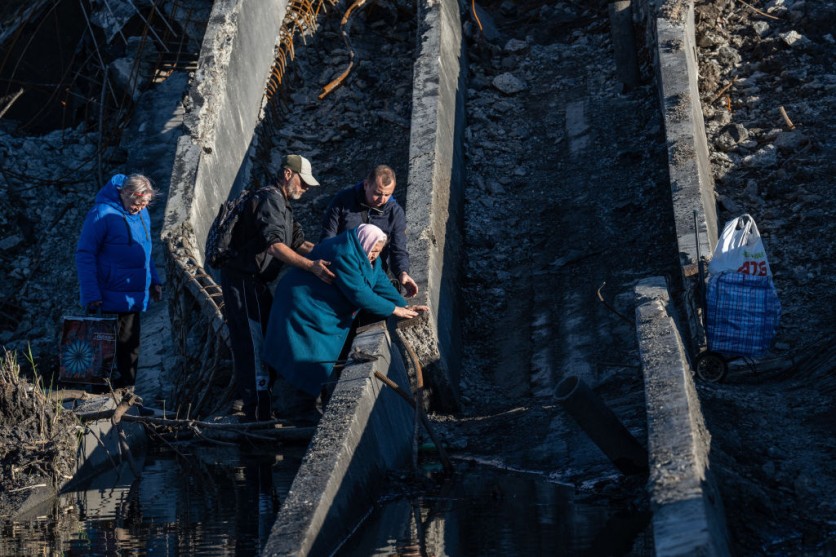The West agreed to give Ukraine more potent air defense systems after a ferocious barrage of Russian missile attacks, including one that briefly cut off the electrical infrastructure of Europe's largest nuclear plant on Wednesday, according to a report by the AP.
According to Ukraine's state nuclear operator, missile damage to a distant electrical substation caused a "blackout" at the Russian-occupied Zaporizhzhia Nuclear Power Plant.

"Deeply Worrying Development"
On Wednesday, the head of the UN's nuclear watchdog called it a "deeply worrying development." The International Atomic Energy Agency's Rafael Grossi issued the warning amidst a flurry of unrest in Russia's ongoing conflict with Ukraine.
The plant's emergency diesel generators, which depend on fuel delivery in the conflict zone, provided backup power while the external power source was repaired, according to Energoatom.
Hundreds of cities and villages across Ukraine lost power when Russia conducted a huge missile attack on Monday in revenge for a truck bomb explosion that damaged a bridge connecting Russia with Crimea, which it annexed in 2014.
The prime minister of Ukraine, Denys Shmyhal, urged citizens to cut back on evening energy use by 25% and stock up on winter supplies including warm clothing, candles, batteries, and flashlights since grid repairs are still ongoing.
The Western allies of Ukraine gathered at NATO headquarters in Brussels to plan their response while the barrage of missiles killed dozens of Ukrainians this week.
According to Joint Chiefs of Staff Chairman U.S. Gen. Mark Milley, Ukraine wants its Western allies to give it a complete air defense system to counter Russian warplanes and missiles.
Zelenskyy's office reports that 34 people were hurt and at least 14 people died as a result of Moscow's retaliatory strikes in the eastern Donetsk region and the Zaporizhzhia area. At least 19 people were killed in the initial attack on Monday, five of whom were in Kyiv.
Steadfast Noon
NATO Secretary-General Jens Stoltenberg also announced on Tuesday that the alliance will proceed with long-anticipated nuclear drills called "Steadfast Noon" the following week.
14 of the 30 NATO member countries would participate in the drill, which was planned before Russia invaded Ukraine in February. The majority of the drills would take place more than 1,000 kilometers (625 miles) away from Russia, according to NATO Secretary-General Jens Stoltenberg.
Stoltenberg said that it would send a "very wrong signal" if NATO suddenly cancels a long-time planned exercise due to the ongoing war in Ukraine.
He stressed that this "would be absolutely the wrong signal to send."
Related Article : IAEF Chief Announces Mission to Ukraine After A 'Suicidal Nuclear Plant Explosion' Alarm Was Raised at Europe's Largest Nuclear Facility
This article is owned by Tech Times
Written by Joaquin Victor Tacla




![Most Useful Google Chrome Keyboard Shortcuts You Need to Know to Improve Your Browsing Experience [2024]](https://d.techtimes.com/en/full/449047/most-useful-google-chrome-keyboard-shortcuts-you-need-know-improve-your-browsing-experience-2024.jpg?w=184&h=103&f=476d29fd60df70a67f6679f99a2ca6d0)